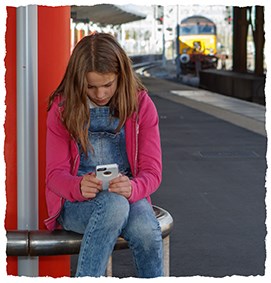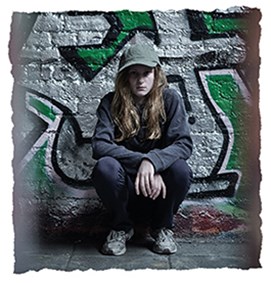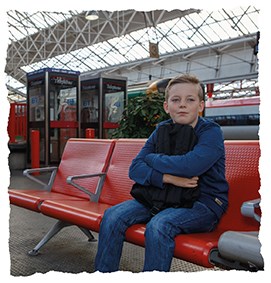Difficult times, different approaches - an update from our frontline UK team
- Date: 27 May 2020
- In: UK
Face-to-face sessions now take place online, contact is made by text message, counselling is given digitally. But in among the challenges there have been some incredible success stories.
Catherine, one of our project workers covering the North West, was on her way to visit a newly referred teenage girl when she heard the girl had taken an overdose and was not able to see her that day. By the time she was well enough to see Catherine, the country had gone into lockdown and that vital first point of contact had been missed.
Catherine persevered however and has since developed a strong and supportive relationship with the girl, who speaks to Catherine every few days, despite never having even met in person. Catherine said:

It’s amazing how much she has opened up and how we’ve been able to develop that relationship without being able to meet.
"Our relationship has provided a lifeline for the girl especially as her mum then got coronavirus and was ill for a while so it was good to be able to support her through that" she added.
Joe, who works across our Yorkshire region has again developed a strong role supporting a young girl for whom he says the lockdown has been a blessing in disguise. He said: “She was running away quite often and getting drawn into gangs with people who are basically trying to groom her.

Being forced to stay home has stopped that and given me the chance to work with her and make her realise the danger she was in.
He added: "Hopefully that time has been enough for her to understand and keep herself away from those situations in future."
Kwame is another one of our project workers facing similar challenges. He said: “On the whole we’ve seen the young people engaging really well with us using different technologies. But there’s a lot you can’t tell from a phone call or FaceTime. A lot of these children are looking for approval from adults so may be telling me what I want to hear.
Without being able to look them in the eye and interpret their body language I have to presume they’re telling me the truth so it’s vital we get back out there in person soon.
Our teams have been given police letters and authority to go and visit the young people we work with but still need to work out the logistics and safest ways to do so.
Wearing masks and protective clothing could be intimidating and unsettling for the vulnerable young people we work with, but many don’t want to be seen outside in public with our team even though that would be safer.

In many cases the dangers facing these children will be greater than ever as Joe explained: "With the ports and air transport restricted the drug supply chains into this country have been stopped. That means that the value of the drugs already in the country has gone right up, and with it the risk to those children who get used by county lines gangs to move the drugs around the country has also soared."